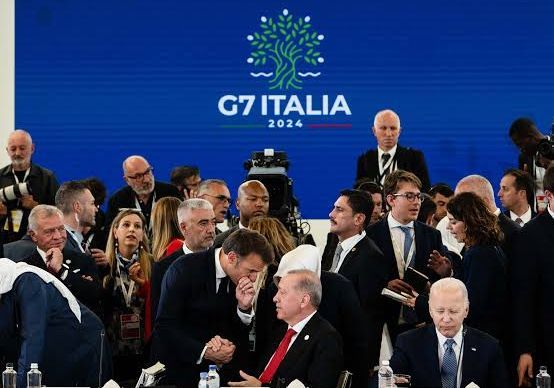THE Group of Seven (G7) called out China for its “increasing use” of dangerous maneuvers and water cannons against Filipino vessels, reiterating its opposition to Chinese “intimidation activities” in the South China Sea.
In a communiqué following the G7 Summit in Apulia, Italy, the leaders of the powerful economic grouping raised concerns about the situation in the East and South China Seas, stressing their “strong opposition to any unilateral attempt to change the status quo by force or coercion.”
“We continue opposing China’s dangerous use of coast guard and maritime militia in the South China Sea and its repeated obstruction of countries’ high seas freedom of navigation,” they said in the statement.
“We express serious concern about the increasing use of dangerous maneuvers and water cannons against Philippine vessels.”
The G7 leaders then reaffirmed that they do not recognize China’s maritime claims beyond the zones specified by the United Nations Convention on the Law of the Sea (UNCLOS) by citing the 2016 Arbitral Ruling on the South China Sea.
“In this regard, we reaffirm that there is no legal basis for China’s expansive maritime claims in the South China Sea, and we oppose China’s militarization, and coercive and intimidation activities in the South China Sea,” they added.
“We re-emphasize the universal and unified character of the UNCLOS and reaffirm UNCLOS’s important role in setting out the legal framework that governs all activities in the oceans and the seas.”
They noted that the 2016 Arbitral Award is “legally binding upon the parties to those proceedings,” and could serve as a “useful basis for peacefully resolving” maritime disputes.
The G7 represents the world’s leading industrialized democracies – Canada, France, the United States, Germany, Italy, Japan, and the United Kingdom.
China lays claim to a huge swath of the South China Sea, including areas within the Philippines’ exclusive economic zone. (PNA)




